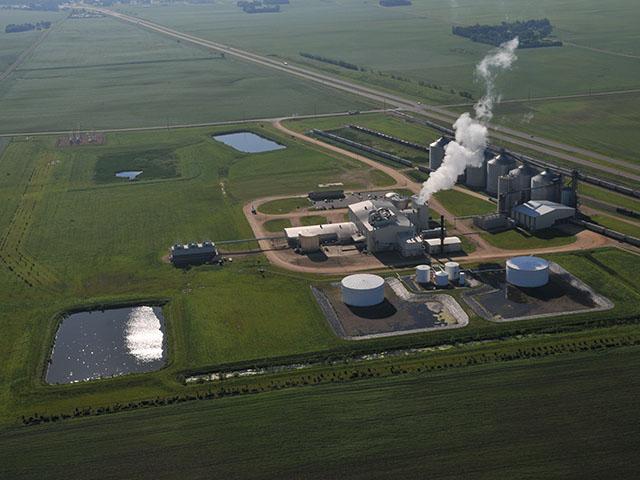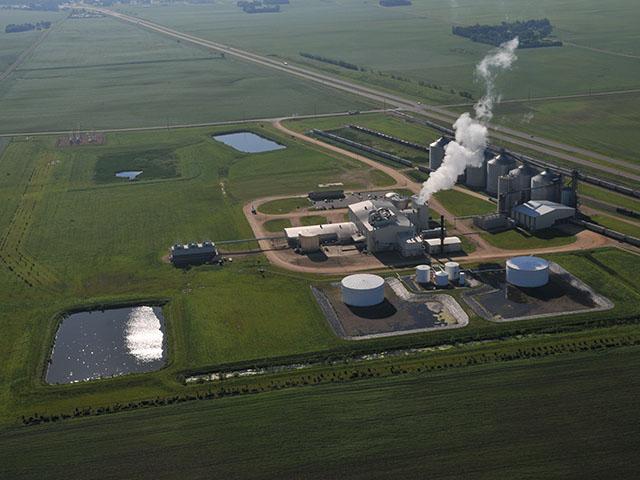Ethanol Blog
Biofuel Groups Express Cautious Optimism as EPA Grants Small-Refinery Exemptions, Announces Plans
LINCOLN, Neb. (DTN) -- Though biofuels industry groups question whether small refineries that received exemptions to the Renewable Fuel Standard on Friday really deserved them, those groups expressed cautious optimism on the proposal put forward by the Trump administration.
-Growth Energy CEO Emily Skor:
"With more than 140 granted refinery exemptions, today's decision alone does not give farmers and biofuel producers the certainty they need. It is imperative that EPA reallocates each and every exempt gallon in a forthcoming rule to mitigate the potentially devastating impact on biofuel demand. We appreciate EPA's commitment to issue a rule that ensures promised homegrown biofuel gallons reach the marketplace and upholds the administration's commitment to American energy dominance."
The U.S. Environmental Protection Agency issued decisions involving 175 petitions for 2016 to 2024. EPA granted full exemptions to 63 petitions, partial exemptions to 77 petitions, denied 28 petitions and deemed seven ineligible.
-Renewable Fuels Association President and CEO Geoff Cooper:
"While RFA continues to doubt that the small refineries receiving exemptions today truly experienced 'disproportionate economic hardship' due to the RFS, we are pleased to see EPA taking an approach to implementation of these exemptions that is minimally disruptive to the marketplace and affirms the agency's intent to reallocate renewable fuel volumes lost to SREs. We appreciate that EPA is focused on an approach that maintains stability in the marketplace and ensures finalized annual volumes under the RFS are maintained. The exemptions granted today should have little or no effect on current and future levels of renewable fuel production and use. It is critical, however, that the renewable fuel blending volumes associated with SREs for 2023 and 2024 are fully reallocated.
"In the days ahead, RFA will be further analyzing EPA's new approach and rationale for determining disproportionate economic hardship. According to EPA's previous analysis, all refiners--both small and large -- recoup their RIN costs when they sell gasoline and diesel. Thus, there is no credible evidence that small refiners are disproportionately affected by RFS compliance, or that the financial impact of RFS compliance rises to a level anywhere close to 'economic hardship.' In any case, SREs were always intended to be a temporary measure and a bridge to compliance--not a permanent handout. Small refiners have now had two full decades to adapt their operations to comply with the RFS."
-Monte Shaw, executive director of the Iowa Renewable Fuels Association:
P[L1] D[0x0] M[300x250] OOP[F] ADUNIT[] T[]
"We must get RFS refinery waiver uncertainty out of the market and today's action by EPA takes a big step forward. While we can quibble with the justification of the SREs granted, the EPA was spot-on in reissuing the same retired RFS credits back to the refiners who received an exemption. This is consistent with past actions when the shoe was on the other foot and is in line with the overall goals of the RFS. One absolutely vital question remains: how or if the SREs from 2023 to 2025 will be reallocated. That is a two-billion-gallon uncertainty hanging over the market and the pending RFS blending rule for 2026 and 2027.
"The supplemental proposal will seek to balance the goals of the RFS in supporting the production and use of renewable fuels while taking into account economic impacts, following the law, and ensuring opportunity for stakeholder comment. Full and complete reallocation of the 2023 and newer SREs is the vital point. In the end, that will determine whether the EPA upholds President Trump's commitment to the RFS and to American farmers. If true reallocation does not occur, then EPA is effectively reducing the already low RFS-blending levels for 2025. IRFA was heartened by EPA's announcement today that it will propose reallocating the exempted volumes.
We now anxiously await EPA's reallocation proposal, at which time we will be commenting in the strongest possible terms that reallocation of every SRE gallon must occur and we will implore the EPA to end the SRE uncertainty before finalizing the 2026-2027 RFS rule."
-Clean Fuels Alliance America Vice President of Federal Affairs Kurt Kovarik:
"EPA's course correction on RFS small-refinery exemptions creates fresh uncertainty for America's farmers and biodiesel, renewable diesel and SAF (sustainable aviation fuel) producers. We look forward to working with the agency to ensure today's decision does not unwind the strong signal of support issued in June through robust RFS volumes meant to drive growth and recognize investment in domestic fuels and American agriculture.
"EPA's announcement conflicts with its consistent finding that small refiners are not facing disproportionate economic hardships from RFS compliance. Refunding retired RINs has the potential to undercut current markets for domestic biodiesel, renewable diesel and SAF as well as for American oilseed crops and other feedstocks. This announcement comes just as farmers begin planning to harvest the year's soybean crop, which is expected to achieve a record-setting yield. We urge EPA to ensure that small refinery exemptions do not undermine the market for farmers and clean fuel producers."
-American Coalition for Ethanol CEO Brian Jennings:
"EPA appears to be carefully trying to balance the recent caselaw and the RFS statute when it comes to their new methodology for small-refinery exemptions. The good news is that EPA is proposing to reallocate any and all small-refinery exemptions they grant for 2023 and beyond, which is how the SRE program should be implemented. EPA will issue a supplemental proposal on how they intend to reallocate exempted gallons for 2023 and beyond, and their reallocation methodology will be incorporated into the final 'Set 2' rule later this year which also covers the 2026 and 2027 renewable volume obligations.
"The agency argues they're not going to reallocate for exempted gallons granted to small refineries for the 2016 through 2022 RFS compliance years because those RINs are expired and it will not have an impact on blending. That may be true and we will carefully monitor how the D6 RIN market reacts to this news. In the past, SREs led to depressed RIN values which discourages blending of E15 and higher blends. Overall, however, the approach proposed by EPA looks reasonable."
-Michael McAdams, president of the Advanced Biofuels Association:
"We are grateful to see EPA take action addressing the extensive backlog of small-refinery exemptions. ABFA is also pleased that the agency plans to prepare a supplemental proposed rule for the reallocation of the exempted volumes for those years where compliance is yet to be demonstrated as well as how to account for exemptions in future years.
"Exemptions have a significant impact on the value of Renewable Identification Numbers. When RIN values drop, the entire advanced biofuels market is destabilized and put at risk, significantly impacting consumers downstream. ABFA looks forward to reviewing the proposed rule for reallocation and forecasting adjustments that can strengthen the market for all parties"
-Devin Mogler, president and CEO of the National Oilseed Processors Association:
"The EPA inherited a messy situation and we appreciate the agency's commitment to ending the years-long SRE litigation and restoring stability to the RFS. NOPA is confident the agency understands that strong RVOs will have profoundly positive impacts on U.S. farmers and rural America. We urge the EPA to build on this progress and quickly finalize the RVOs in a way that delivers these positive impacts, by finalizing a re-allocation policy that fully accounts for gallons lost due to SREs in 2023 to 2025 and any projected SREs for future years, expanding volumes for the biomass-based diesel category to at least 5.25 billion gallons and ensuring domestic feedstocks and fuels are prioritized. These measures are essential to ensuring the program strengthens domestic markets and keeps investment and jobs in rural America."
Read more on DTN:
"Trump Grants Full SREs on 63 Petitions," https://www.dtnpf.com/…
Todd Neeley can be reached at todd.neeley@dtn.com
Follow him on social platform X @DTNeeley
(c) Copyright 2025 DTN, LLC. All rights reserved.






Comments
To comment, please Log In or Join our Community .